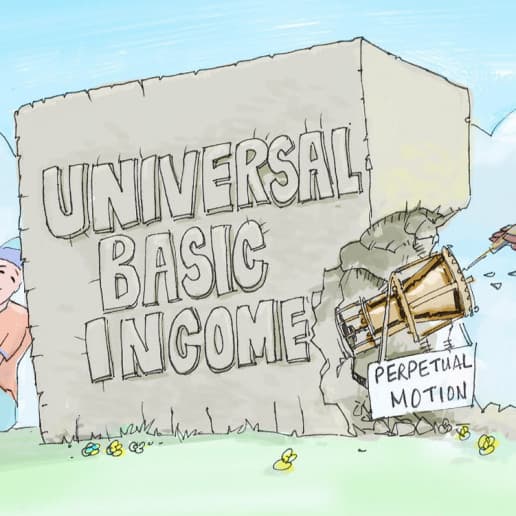Universal Basic Income Faces Significant Fiscal and Behavioral Feasibility Questions

The concept of Universal Basic Income (UBI), a system of regular, unconditional cash payments to all citizens, continues to be a subject of intense global debate, with its practical feasibility often questioned. Ashutosh Shrivastava, a prominent voice on social media, recently expressed strong skepticism, stating in a tweet, "UBI is not possible. I don’t know what these people are smoking, but it’s definitely not good for their brain." This sentiment underscores a core contention surrounding UBI's widespread implementation.
Proponents argue that UBI could serve as a powerful tool for poverty reduction, providing a crucial safety net in an era of increasing automation and economic instability. Advocates suggest it could streamline complex welfare systems, reduce administrative overhead, and empower individuals with greater financial freedom to pursue education, entrepreneurship, or care work. Some studies indicate UBI could stimulate local economies by boosting consumer spending and potentially improving public health outcomes by reducing financial stress.
However, the primary hurdle for UBI remains its immense cost. Estimates for implementing a UBI in developed nations, such as the United States, have ranged from hundreds of billions to several trillion dollars annually, representing a substantial percentage of national GDP. For countries like India, a modest UBI could still demand 3-4.9% of GDP, raising concerns about fiscal sustainability, potential inflationary pressures, and the need for significant tax increases or cuts to other vital public services.
Another major concern revolves around the potential for UBI to disincentivize work. Critics argue that a guaranteed income, especially if set at a level sufficient to cover basic needs, could reduce motivation to seek employment or work longer hours, leading to labor market distortions and a decline in overall productivity. This argument often highlights the principle of reciprocity, questioning whether individuals should receive benefits without a corresponding obligation to contribute to society.
Despite these challenges, various pilot programs have been conducted worldwide, yielding mixed results. Experiments in places like Finland, Canada (Mincome), and parts of the United States (e.g., Alaska's Permanent Fund) have provided valuable insights. While some pilots reported improvements in health, happiness, and financial stability among recipients, they have not fully resolved the broader questions of long-term fiscal viability and large-scale behavioral impacts.
The strong skepticism expressed by figures like Ashutosh Shrivastava reflects the deep divisions in the ongoing UBI debate. While the theoretical benefits of poverty alleviation and increased individual autonomy are compelling, the practicalities of funding and the potential for unintended behavioral consequences continue to pose significant questions about UBI's ultimate possibility as a universal policy.